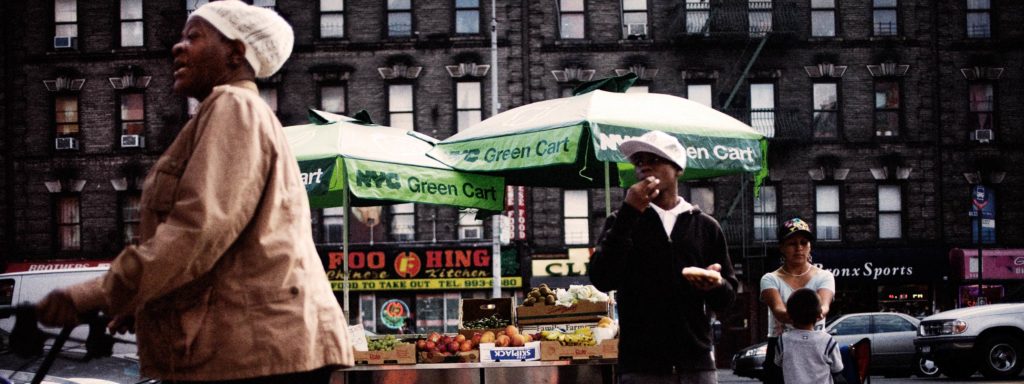
The reason why so many New Yorkers have health problems has been tied directly to a lack of supermarkets. With an obese and diabetic population of 25% and 8% respectively, New York City has over 3 million residents in “high-need neighborhoods;” these neighborhoods can either be food deserts or food swamps. Not only does such a shortage affect the health of residents, but also their time and money as they have to travel elsewhere for food that is more expensive.
Back in 2008, the city implemented the Food Retail Expansion to Support Health Program (FRESH) which offered zoning and tax incentives to developers in hopes of getting them to build more supermarkets in these high-need neighborhoods. Now, the de Blasio administration wants to extend the zoning incentives to more neighborhoods. Although this is inherently a positive development, the program has had mixed results up to date – the root problems of which necessitate a solution before the program gets spread even thinner.
Over the past 12 years, the program has only opened 8 out of the 27 zoning-benefits-qualifying buildings; of the 22 others who received tax incentives, 22 are completed. Of the very limited number of supermarkets who have opened under the program’s jurisdiction, most have been in Harlem and Bedford-Stuyvesant. According to CUNY Urban Food Policy Institute research director, Nevin Cohen, “the number of supermarkets that have opened using FRESH incentives is actually modest in comparison to the turnover of the retail food sector. Supermarkets open and close all the time in New York City.” One major downfall of the program is that the incentives offered are not necessarily intriguing enough to prompt the development of more supermarkets; in other words, the projects who received incentives from the program likely would have been developed anyway. This is due to multiple reasons: 1) the city already offers up to 20,000 extra residential square feet beyond a building’s zoned limit – which equals out to 1 square foot of apartment per every square foot of supermarket; 2) the city’s Planning Commission offers an extra 15ft of height to make room for the bonus space; 3) property taxes have been frozen at pre-improvement amounts for the past 25 years; 4) over the same period, land taxes have been fully abated; and 5) developers have been able to avoid paying both city and state sales taxes on construction and renovation materials.
As such, it is the program’s incentivization package that is failing to properly do its job – a reality that has far reaching implications when 1 supermarket can singlehandedly decrease obesity rates. So, what is really preventing the program’s incentives from drawing in developers? Gentrification. Developers have, and will continue to, build in the city’s most desirable neighborhoods. The housing markets where FRESH developments are needed are fundamentally weak, which in turn weaken the zoning incentives. Therefore, despite FRESH allowing more market-rate units, the development still remains unattractive. And, as stated prior, those gentrifying neighborhoods where FRESH stores have popped up – such as Bed-Stuy – would have likely been home to the same stores without the incentives.
It’s not as though FRESH isn’t aware of the program’s shortcomings. According to the agency’s announcement during a public meeting on the topic, “approximately half of the certified projects are concentrated in Brooklyn, and applications have been concentrating in specific areas with strong housing markets, such as Bedford-Stuyvesant and Harlem.” As such, the city planners have been planning to make some much needed changes to the program.
These changes will include spreading the zoning incentives to more districts, even including those that already offer the tax incentives; should this be approved, the number of districts in which developments can apply for FRESH zoning benefits will jump from 19 to 30. Planners have also proposed capping a specific residential square footage bonus which has led to the development of so many apartments; the plan would cap the additional floor area to 40,000sqft within a half-mile of any proposed FRESH store. In this proposal, a priority process for early applicants would be in place.
City planners will be presenting this proposal at a hearing on September 22nd.
Founded by attorneys Andreas Koutsoudakis and Michael Iakovou, KI Legal focuses on guiding companies and businesses throughout the entire legal spectrum as it relates to their business including day-to-day operations and compliance, litigation and transactional matters.
Connect with Andreas Koutsoudakis on LinkedIn.
Connect with Michael Iakovou on LinkedIn.
This information is the most up to date news available as of the date posted. Please be advised that any information posted on the KI Legal Blog or Social Channels is being supplied for informational purposes only and is subject to change at any time. For more information, and clarity surrounding your individual organization or current situation, contact a member of the KI Legal team, or fill out a new client intake form.

